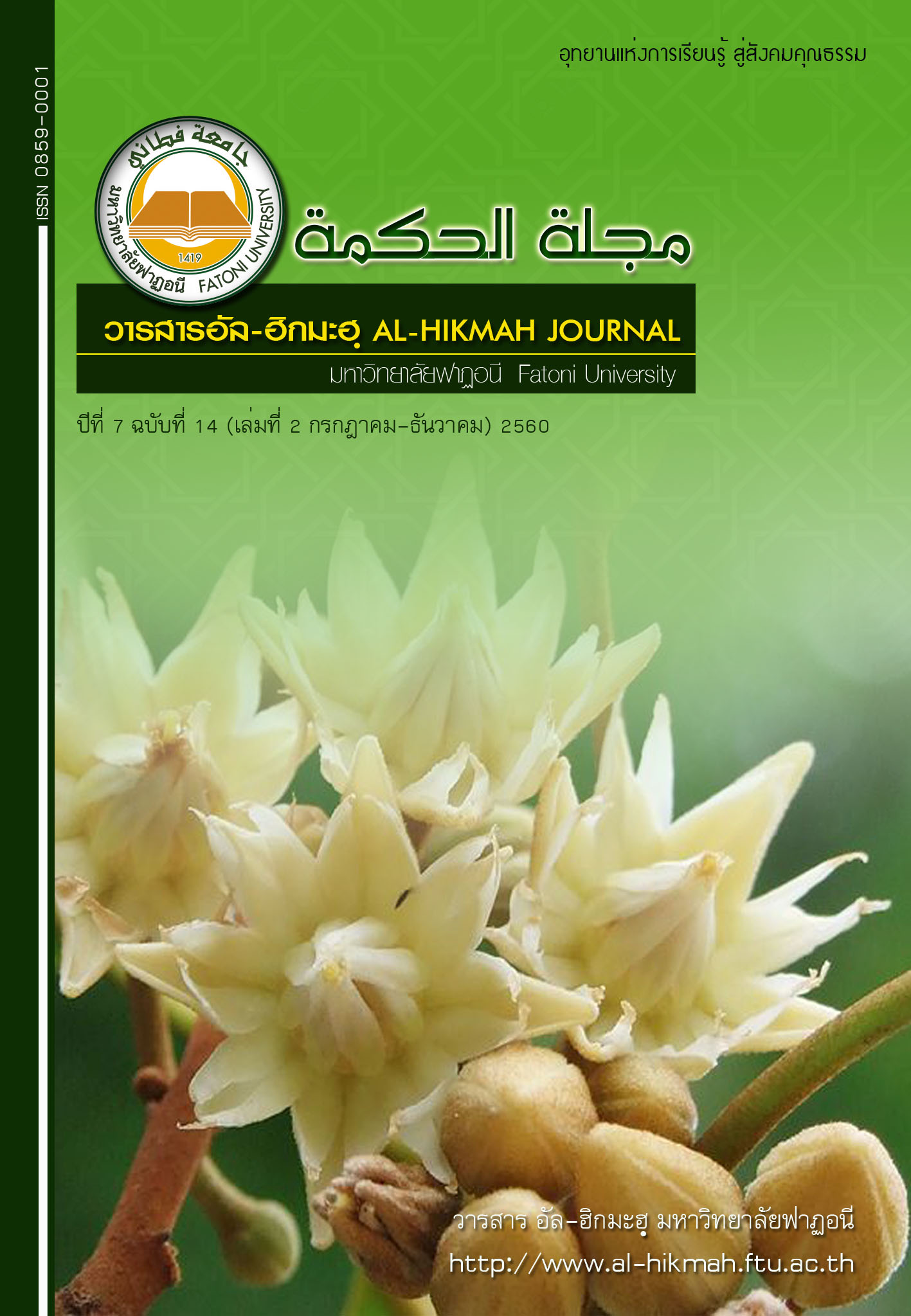การพัฒนาหลักสูตรฝึกอบรมเน้นสมรรถนะเพื่อเสริมสร้างสมรรถนะความรู้สึกไวของครู
Keywords:
หลักสูตรฝึกอบรมเน้นสมรรถนะ, ความรู้สึกไวของครู, สมรรถนะความรู้สึกไวของครูAbstract
The purposes of this research are as follows is to: 1) to develop the teacher sensitivity competency; 2) to develop a competency-based training curriculum to enchance teacher ensitivity competency; 3) to evaluate the effectiveness of a competency-based training curriculum to enchance teacher sensitivity competency. The study on Research in Research and Development (R&D) by One-Group Pretest-Posttest Design. The method is divided into three phases. Phase One: the development of teacher sensitivity competency; Phase Two: the development of a competency-based training curriculum to enchance teacher sensitivity competency; Phase Three: evaluating the effectiveness and improving competency-based training interns of curriculum to enchance the sensitivity competency of teachers has been developed. The results of the research revealed the following: 1. It consists of three competencies: positive interaction between teachers and students in the classroom, responsiveness to individual learning difference needs and capacity to scaffold the problem-solving skills of children; 2. competency-based training curriculum to enchance teacher sensitivity competency and consists of five units: Unit One, Student Learning Difference; Unit Two, Interaction within Classes. Unit Three, problem solving skills in the classroom. Unit Four Learning Design, Learning Management and classroom teaching experiments. Unit Five: Teaching Activities in Schools; 3. the effectiveness of the curriculum found the following: 1) Student teachers have higher teacher sensitivity competency scores than more established teachers and after learning rather than before learning and at a statistically significant at the .05 level; 2) Student teachers who have experience are trained in performance-oriented training to enhance the sensitivity of teachers have a passing score interns of knowledge and understanding from activities in units one to four for all the set criteria; 3) All ten student teachers have improve in the design of learning management and classroom learning activities, both from the assessments of mentors and instructors at a higher criteria. Interviews with students and mentors found that student teachers had teacher sensitivity competency in all three aspects; and 4. Student teachers who are trained in a competency-based training curriculum to enchance teacher sensitivity competency have satisfaction with the curriculum at the highest level.
References
http :// www.alumni.rtu.ac./doc/
/Knowledge_performance.pdf.
ประเสริฐ ตันสกุล. 2551. ทักษะประคองตน.วันที่ค้นหาข้อมูล 27 ธันวาคม 2551, จาก
http:// www. Aspacngo. Org /unloads /events /jamming /6 pbf.
สำนักงานข้าราชการพลเรือน. 2553. คู่มือการกำหนดสมรรถนะในราชการพลเรือน: คู่มือสมรรถนะเฉพาะตามลักษณะงานที่ปฏิบัติ. นนทบุรี: บริษัท ประชุมช่าง จำกัด.
สำนักงานคณะกรรมการการอุดมศึกษา. (กุมภาพันธ์ 2554). “2554 ปีแห่งการพัฒนาคุณภาพครู”.
อนุสารอุดมศึกษา. ออนไลน์. 37(392): 1-24. วันที่ค้นหาข้อมูล 25 มกราคม 2558, จาก
http :// www.mua.go.th/pr_web.
Blank, William E. 198). Handbook for Developing Competency-Based Training Programs.
New Jersey: Prentice-Hall.
Elita Farine Amini Virmani. 2009. Early Childhood Mental Health Consultation: A Systematic Approach to Improving Teacher Sensitivity Through Ongoing Professional Development. Human Development Office of Graduate Studies University of Califonia.
Lynch Tony. 1997. Communication in the Language Classroom. 2nd . Oxford University Press, Oxford New York.
McClelland, David. 1979. Testing for Competence rather than for Intelligence.American Psychologist.Retrieved December 14, 2009, from
http://www.haygroup.com.
Melodie Rosenfeld& Sherman Rosenfeld. (2004, August). Developing Teacher Sensitivity to Individual Learning Differences. Education Psychology. 24(4), 465-486.
Ruiz, Yumary; et al. 2012. “Lesson Learned from a Community-Academic Initiative: The Development of a Core Competency-Based Training for Community-Academic Initiative Health Workers”. American Journal of Public Health, 102(12).: 2372-2379. Retrived April 25, 2015.From http://eds.a.ebscohost.com/eds/pdfviewer/pdfviewer? Vid=5&sid=8f975a40-0dbc-4683-9ae1-16afc40ebdbc %40sessionmgr4004&hid=4110.
Schoenfeld, A. H. 1988. Individual Differences and Learning Strategies, in C.E. Weinstein, Goetz and P.A. Alexander Learning and Study Strategies: Issue in Assessment, Instruction and Evaluation. San Diego: Academic Press.
Schunk, Dale H. 2004. Learning theories: an educational perspective. 4thed. The Lehigh Press, Inc. New Jersey.
Columbus, Ohio Lynch Tony. 1997. Communication in the Language Classroom. 2nd. Oxford University Press, Oxford New York.
Williamson, M. F.; & Watson, R. L. 2007. “Learning styles research: Understanding how teaching should be impacted by way learners learn: Part III: Understanding how learners’ personality styles impact learning”. Christain Education Journal, 4(1). 62-77.



